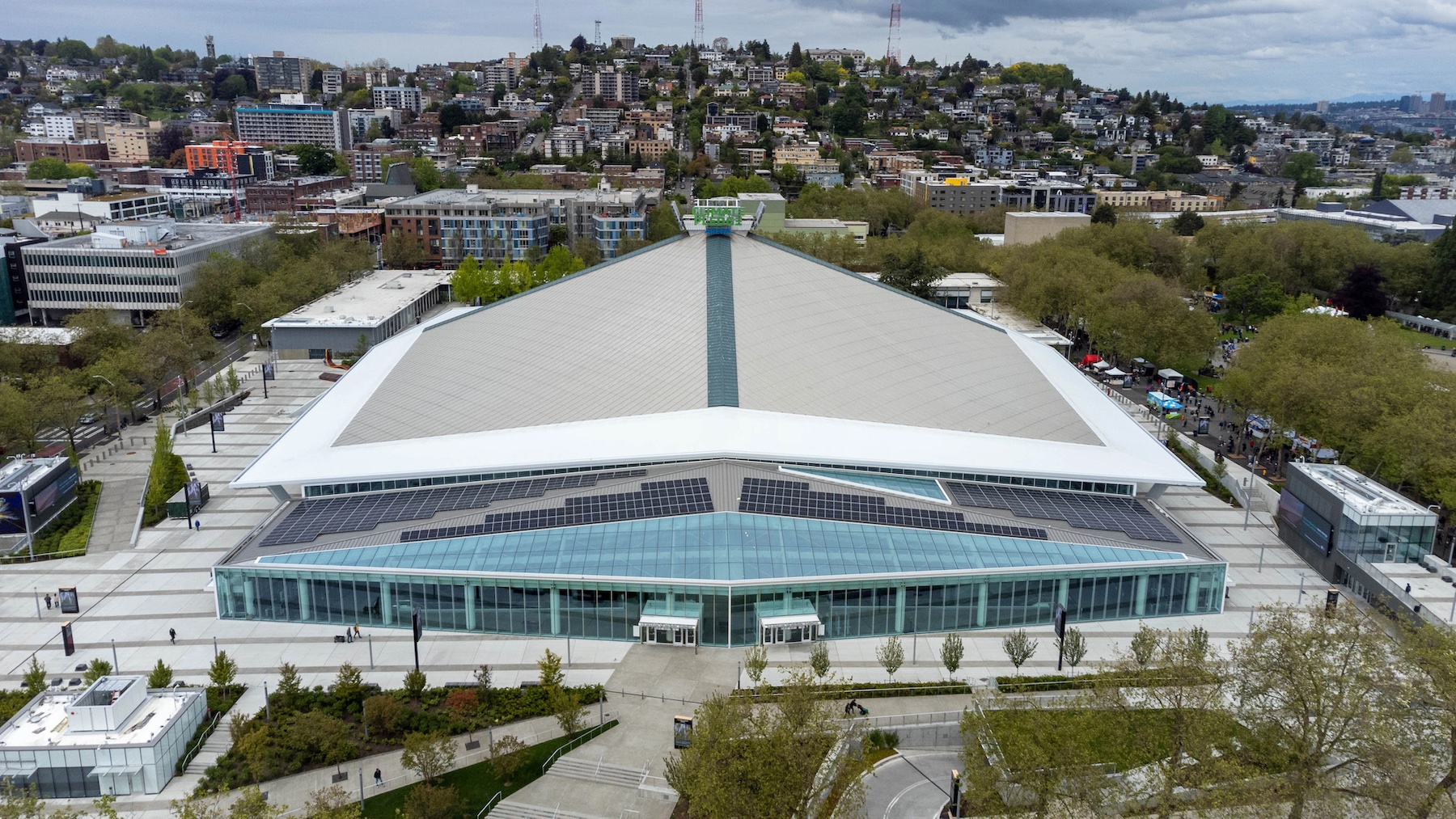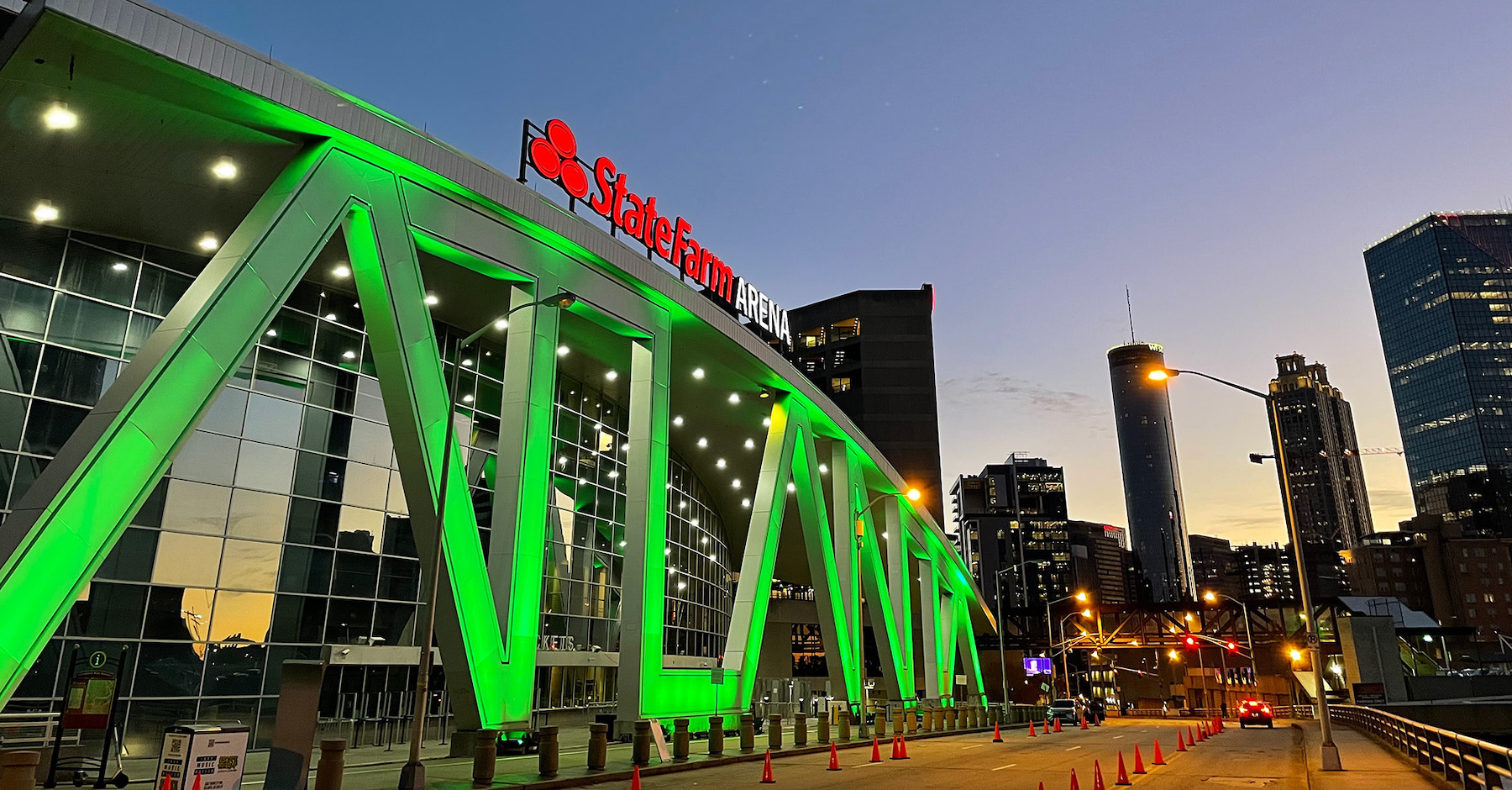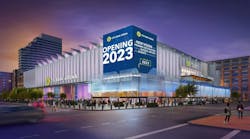A new communications platform aims to help sports and entertainment venues operate greener
By John Caulfield, Senior Editor
This month, the 14,000-seat CFG Bank Arena in Baltimore, which operates out of a building that dates back to 1962, completed a $200 million renovation. Using the engineering firm Buro Happold’s Life Cycle Assessment toolkit, the building’s operator Oak View Group was able to measure the reno’s environmental impact, which compared to new construction reduced the embodied carbon of structural materials used by 95 percent to 8,000 megatons, 50,000-plus tons of structural waste that otherwise would have resulted from demolition, 6 million pounds of steel that would have been melted or disposed of, and 24,000 cubic yards of concrete that would have ended up in landfills.
CFG Bank Arena is one of 18 founding members of Green Operations and Advanced Leadership (GOAL), a nascent platform that helps sports and entertainment venues operate in environmentally sound ways. GOAL’s members pay a fee for access, via Amazon Web Services-powered software, to “points of engagement” that include library resources, cross-venue collaboration and sharing of best practices, leveraging data to measure, track and analyze venue performance; as well as validation and recognition.
Los Angeles-based Oak View Group, which launched GOAL, is a development and ownership firm specializing in sports and entertainment venues, with over 200 clients. It is one of GOAL’s four equity partners along with the Atlanta Hawks and State Farm Arena, Fenway Sports Group, and the architect James F. McClennan, who founded the International Living Future Institute, created the Living Building Challenge, and coauthored the WELL Building Standard. McClennan worked with Oak View Group on developing the design and operations for Climate Pledge Arena in Seattle, which is generally considered one of the most progressive and sustainable venues in the country.

Kristen Fulmer, GOAL’s sustainability director, tells BD+C that GOAL is filling a void in markets where there are lots of industry examples and guidelines for green construction, but “there are no great best practices or guidance for operations toward sustainability.”
GOAL’s objective, she says, is to come up with guidelines that take these venues beyond LEED compliance. Sports Business Journal reported that McClennan’s role with GOAL will be working with Fulmer to continually update the platform’s standards, protocols, and tools. “We want to work with venues that are ready to take on sustainability,” she tells BD+C. “There’s no longer a question of need, but knowing either where to start or what next step to take.”
Peer reviews available
Fulmer acknowledges that some of GOAL’s members are farther along on their sustainable journeys than others. For example, State Farm Arena is zero-waste certified, which means it is diverting at least 90 percent of its waste from landfills. The arena also recently switched from single-stream to multi-stream recycling, increasing the value of its recyclables. But Fulmer points out that State Farm Arena has yet to conduct carbon emissions measurements.
One of GOAL’s strength, she says, is that its members will be able to use data and communication tools to compare their status and progress against other venues at roughly the same level of sustainability, and to customize their own roadmap toward hitting sustainable targets.

Part of a ‘movement’
The Building Team on the CFG Bank Arena reno included SCI Architects, Baltimore-based interior design firm The Adams Design Group, and the general contractor Clark Construction. Fulmer asserts that AEC firms should be paying attention to GOAL because “it’s showing a collective movement toward sustainability, which could drive the industry toward greater collaboration.” She also notes that the development model has been shifting toward sports and entertainment districts and mixed-use, for which sustainability is becoming more of an imperative.
To grow, GOAL is seeking partnerships with other ownership groups, and is leaning toward the car racing and convention center sectors, both of which Fulmer says have shown interest in tapping into GOAL’s resources and network. The organization is also planning an annual sustainability conference.
GOAL might also benefit from the strategic alliance that Oak View Group’s venue management arm, OVG360, struck last October with Green Sports Alliance, to support the sports industry’s response to climate change. That pairing is expected to lead to greening events and better collaboration among the two partners’ membership.
